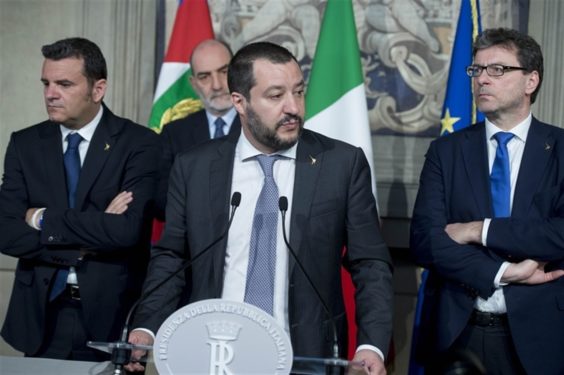By Claire Giangravè

ROME (Crux) – So far, Pope Francis’ agenda on immigration has not proved powerful enough to withstand Europe’s new political reality, where opinion and votes are more easily driven by buzzwords such as “crisis” and “invasion.”
While some might have maintained the hope that at the international level, a field where Pope Francis has scored some major victories, the Vatican’s position on immigration would bear fruit, participants at a Catholic conference in Rome argue that the battle may already be lost.
“There is no lack today for reasons to be concerned about the policies, or lack of policies, by the European Union on the matter of immigration,” said Ugo Villani, President of the Scientific Committee of the Toniolo Institute.
He was speaking at a seminar titled “Immigration Agenda: Welcome, Protect, Promote and Integrate,” organized by the Italian lay movement Azione Cattolica in collaboration with the Vittorio Bachelet and Giuseppe Torniolo Institutes, which took place in Rome Nov. 9.
Villani expressed concern for the “opacity” of the European system, which he said raises the risk that “the basis of the rule of law and the rights of immigrants be forsaken.”
As European nations argue amongst each other about how to “share the load” of immigrants coming in, Villani sees another, real crisis of the European integration system, which in his opinion is disintegrating.
Taking Italy as an example, where the Minister of the Interior and head of the right-wing populist party Northern League, Matteo Salvini, has enacted strongly anti-immigrant legislation, Villani uses words of caution.
“This government may be more violent, so to speak, but the climate behind the decree is not from today, it was born before,” he said, suggesting that the process that led to anti-immigrant sentiment in Italy has deep roots.
Just as Italy and Europe as a whole refuse to follow the Vatican’s direction on the matter of immigrants, the United Nations is also struggling to find a cohesive approach.
The Vatican collaborated closely with the UN to propose recommendations for the Global Compacts on refugees and migrations, which will be approved before the end of 2018.
Vatican representatives proposed 20 points, including the elimination of the distinction between refugees and economic migrants, the need to welcome more small groups of immigrants to promote integration, reuniting family members and eliminating the language requirement for immigrants seeking citizenship.
Just these few examples show how the Catholic Church is among the most ardent in terms of pro-migrant policies, which is perhaps why the UN paid no heed.
The Global Compacts today “do not place the human person at the center,” said Francesco Cherubini, a lawyer from LUISS University.
Refugee Distinction
“The final result of the two documents is very distant from the suggestions made by the Holy See, meaning a model that put the human person at the center. The distinction between refugee and economic migrant remains,” he said, and “States seem to be more concerned with security rather than humanitarian aspects.”
Speakers at the conference called people to action.
“How we face the immigration question depends on what we will be in the future,” said Matteo Truffelli, President of the widespread Italian lay movement Azione Cattolica.
Truffelli said it comes down to whether “we will know how to look at history, if we will be able to welcome and support, or if we will let ourselves be overcome and broken from within.”
The debate surrounding immigration, he said, is emblematic of two other issues that humanity is struggling with: a crisis of truth, spurred by the fake news phenomenon, and an increasingly polarized society.
Truffelli pointed to “our growing struggle to measure ourselves with reality as it is, and not through distorted perceptions,” and the “tendency to divide ourselves on opposing fronts that make us unable to communicate.”
In order to tackle immigration, he added, it’s necessary to “leave our podiums and go beyond the reciprocal accusations of superficiality and ignorance,” in an effort to “look at reality and get involved to try and change things.”
While governments, institutions and international organizations may have been a disappointment for those working to create a more welcoming society toward immigrants, the conference presented two practical examples of Catholic groups working at the grassroots level.
Angelo Moretti, Director General of the Salt of the Earth group and Coordinator of Caritas in Benevento, drives his van around Italy to convince small towns populated only by the elderly to welcome immigrants, as part of a project called “Small Towns of #Welcome.”
Striking a different note, Moretti spoke of a “great opportunity” today in terms of immigration.
“From a Christian standpoint, the fact that the smallest on earth are setting the agenda of Western superpowers is remarkable,” he said.
When he visits the almost 5,000 towns in Italy with under 1,000 inhabitants, Moretti always asks the same question: “What vision of the future do you have?” By starting the conversation, the activist speaks to aging Italians about the advantages of creating a “synergy” with the newcomers.
“Immigration has always existed,” he said, “but what has changed is our welcoming system.”
Following the encouragement given by Pope Francis during his 2013 visit to the Astalli welcoming center, Ripamonti and his colleagues worked with educational projects in schools to promote a change in perspective.
